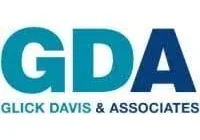In today’s climate of limited funding, shifting regulations, and growing demand for impact, nonprofits and healthcare organizations are expected to do more with less—while also proving their effectiveness. Performance improvement consultants offer targeted expertise to help these organizations rise to the challenge.
Here are five powerful benefits of engaging a consultant—and how they can transform your organization's capacity, operations, and outcomes.
1. Specialized Expertise and Industry Insights
Nonprofits and healthcare organizations operate in highly regulated and mission-driven environments that demand nuanced understanding. Performance improvement consultants bring decades of cross-sector experience, drawing on best practices in clinical care, organizational development, governance, finance, and nonprofit strategy.
They stay current with evolving trends, funding models, and compliance standards—such as HIPAA in healthcare or nonprofit audit standards—and apply this knowledge to help organizations avoid pitfalls and adopt proven strategies. Whether addressing underperforming programs, declining community engagement, or outdated infrastructure, consultants offer tailored solutions that are both pragmatic and mission-aligned.
Their ability to leverage benchmarks, data, and comparative analysis ensures that organizations make informed decisions grounded in evidence—not guesswork.
2. Objective, Unbiased Assessments
When organizations face internal challenges, it’s common for blind spots and biases to cloud judgment. Staff and leadership may be too close to the issues—or too invested in long-standing processes—to see the root causes clearly.
Performance improvement consultants bring fresh eyes and independent judgment to assess operations without internal pressures or preconceived assumptions. Their neutrality enables them to ask hard questions, challenge the status quo, and propose changes that insiders may hesitate to raise.
Through stakeholder interviews, process observations, and data analysis, consultants offer diagnostic clarity. They don’t just describe what’s broken—they help uncover why it's happening and how to fix it in realistic, sustainable ways.
3. Enhanced Operational Efficiency
Inefficient systems are often the hidden drain behind burnout, mission drift, and budget overruns. Consultants help leaders pinpoint where time, money, and talent are being lost—often in areas like duplicate processes, outdated technologies, or poorly defined roles.
With this insight, they help streamline administrative workflows, improve cross-departmental collaboration, and align organizational structure with strategic goals. For healthcare organizations, this may involve redesigning clinical processes for better patient flow. For nonprofits, it could mean reworking grant management systems or refining volunteer coordination.
The result is leaner operations with better use of resources, ultimately freeing staff to focus on what matters most—serving communities and delivering impact.
4. Capacity Building and Knowledge Transfer
Effective consultants don’t just solve problems—they build your team’s ability to solve problems on their own. They work side-by-side with staff throughout the engagement, offering training, mentorship, and collaborative problem-solving.
This hands-on approach ensures that the organization isn’t just reliant on outside help. Instead, staff gain new tools and frameworks they can apply well into the future—such as how to conduct root-cause analyses, manage change, or use performance dashboards to track success.
Over time, this capacity building fosters a culture of continuous improvement, resilience, and innovation—reducing long-term dependence on external support and enhancing the organization's adaptability.
5. Focused, Results-Driven Change Management
Many improvement initiatives fail not because the ideas are wrong, but because the execution lacks focus, discipline, or follow-through. Performance improvement consultants bring structured project management, clear accountability, and a relentless focus on outcomes.
They establish measurable goals from the start, define milestones, and track progress against KPIs. Their third-party role often gives them the authority and agility to help navigate organizational resistance, realign leadership teams, and sustain momentum—especially during complex turnarounds or transitions.
Whether helping a nonprofit clarify its mission and impact model, or guiding a healthcare system through operational restructuring, consultants ensure that change is not only planned—but implemented, tracked, and embedded.
Conclusion: A Strategic Investment in Long-Term Impact
Hiring a performance improvement consultant is not a sign of weakness—it’s a strategic investment in growth, sustainability, and mission success. For nonprofits and healthcare organizations balancing high expectations with finite resources, the right consultant can help unlock clarity, capacity, and transformational results.
By combining specialized insight, independent perspective, operational rigor, and a commitment to results, performance improvement consultants help organizations thrive in complex environments—and build the internal strength to sustain that success for years to come.
Frequently Asked Questions
Performance improvement consultants help organizations diagnose problems, streamline operations, and implement strategic changes to boost efficiency, outcomes, and impact. They bring an outside perspective and specialized tools tailored to specific sectors like healthcare and nonprofits.
